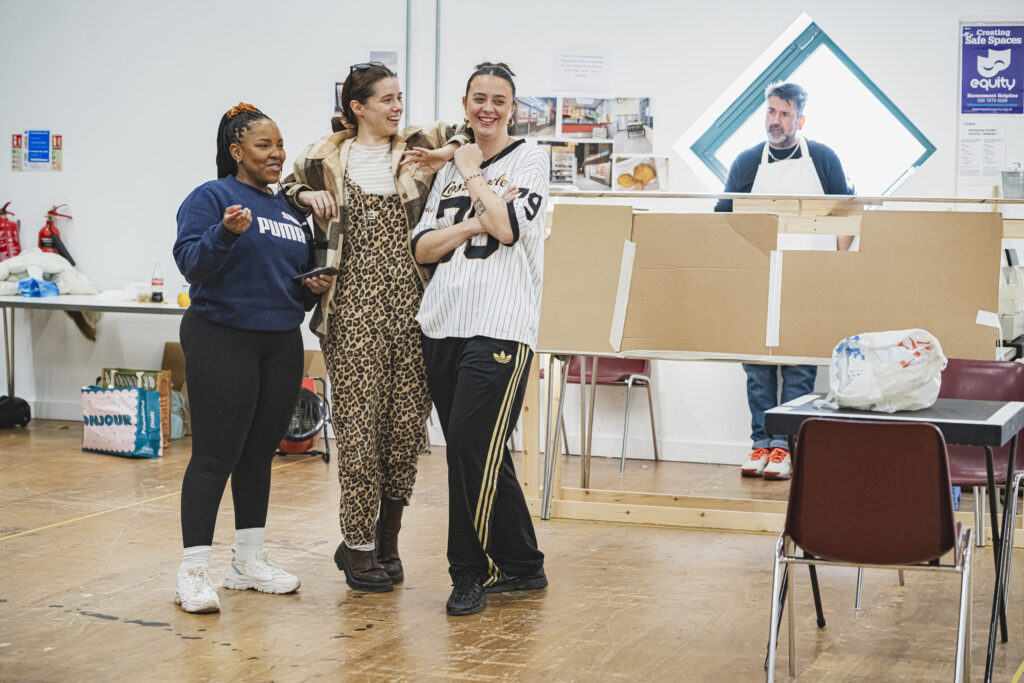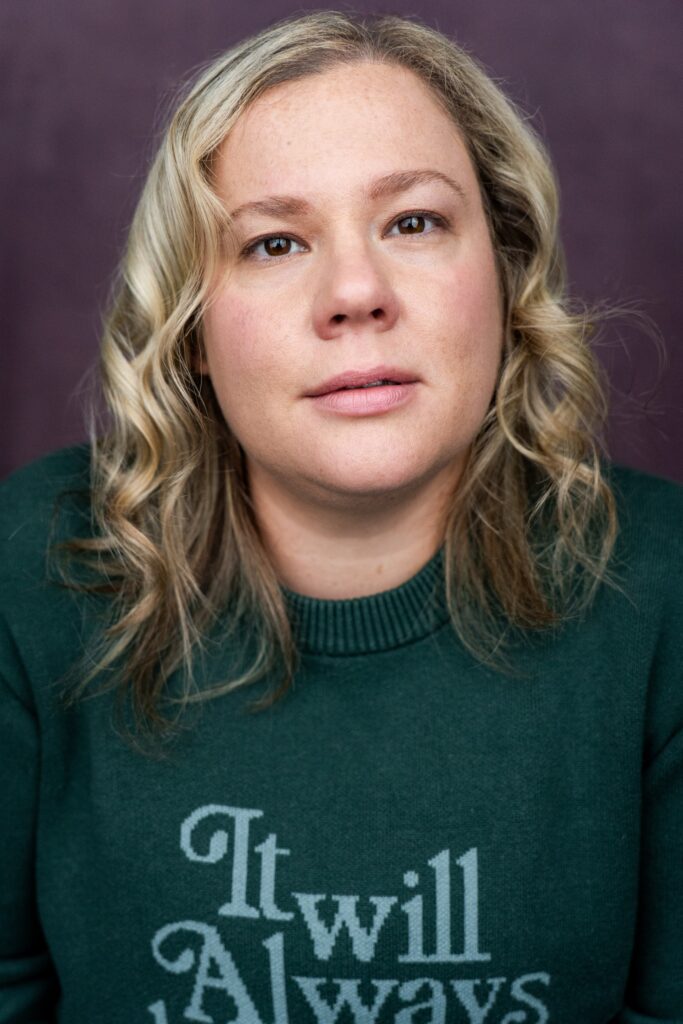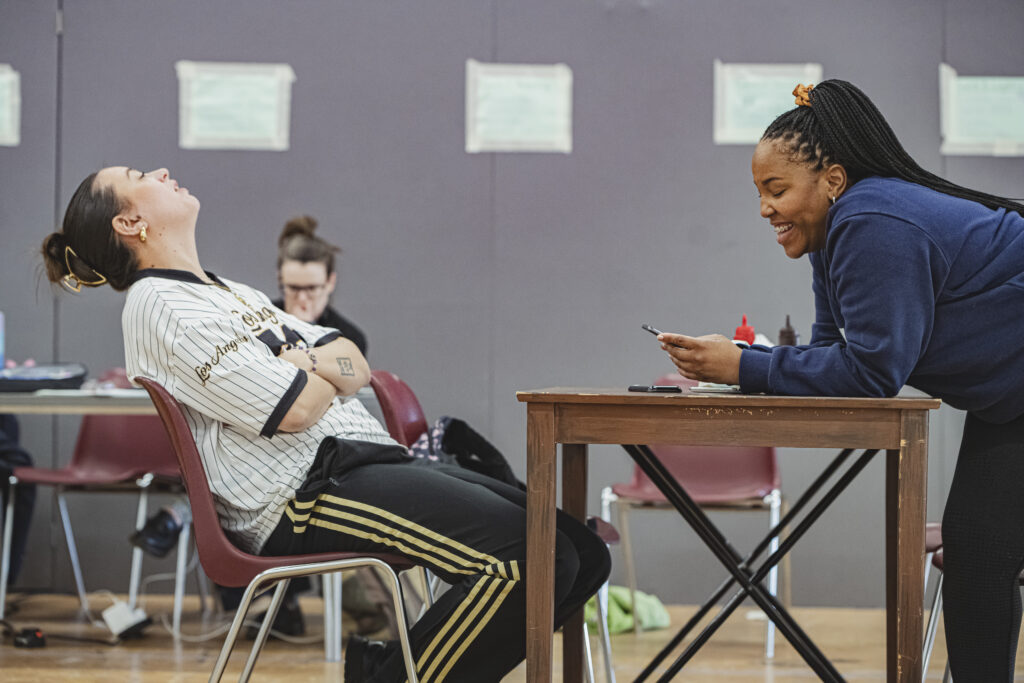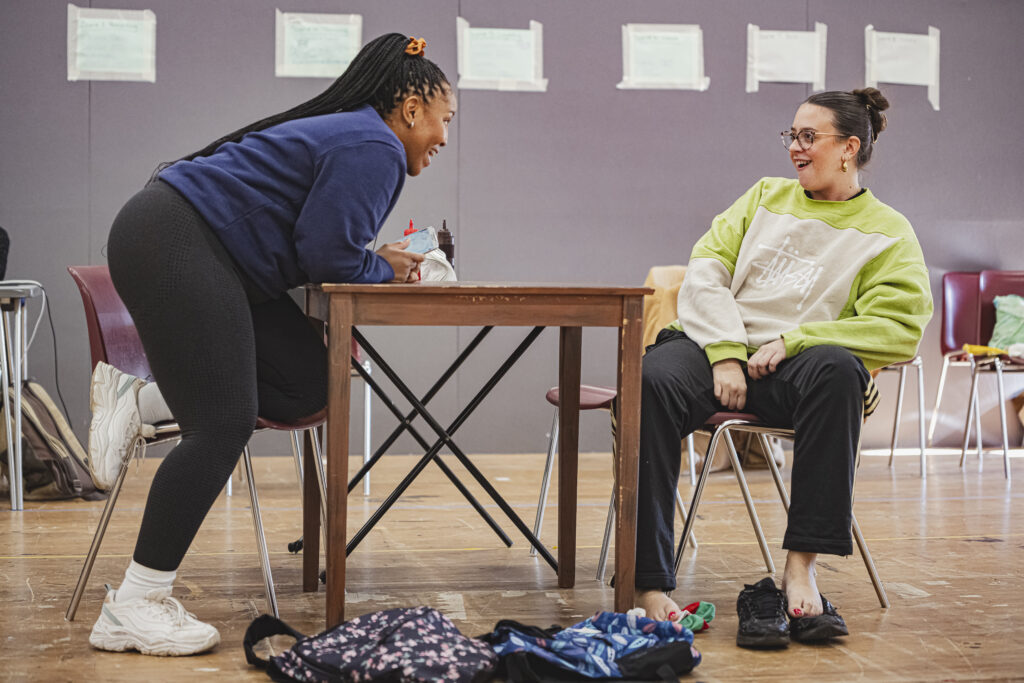Interview: Rebecca Jade Hammond on her new play ‘Hot Chicks’

Rhys John Edwards
Rebecca Jade Hammond’s new play ‘Hot Chicks’ explores how organised crime groups abuse, manipulate and exploit young people through the practice of County Lines. It’s said to be alarming, confronting and harrowing – but also, Rebecca promises, ‘very funny’.
‘It covers some deep and dark themes,’ she explains, meeting me ahead of the show’s opening in Cardiff. ‘But it’s very quick and witty – these characters are smart.’
Her preliminary research led her to accounts from children as young as nine who had been involved in drug deals, so it was clear from the outset that some light would be necessary to offset this subject matter’s substantial shade. But the comedy was not solely included for the purposes of levity, it was also to ensure that this story was true to life.
Rebecca knew that her central characters, teenagers Ruby and Kyla, needed to be authentic and relatable for the play to make it’s intended impact, and the best way to achieve this was to place their intelligence and punchy banter at the heart of the story.
‘One thing I really hate in theatre is when writers dumb down children. We so often dumb down young people’s intelligence, so I wanted to make sure that these girls were whip-smart from-the-off.’
Much more than their trauma
These were traits she had recognised from the real-life Rubys and Kylas that she had met during her research. These inspiring young people were so much more than their trauma.
‘We’ve been working with organisations like SAFE (Safeguarding Adolescents from
Exploitation) in Cardiff and CMET (Contextual, Missing, Exploitation and Trafficking) in Swansea – two charities that are part of social services that work specifically with people who have been exploited in various ways, not just County Lines.’
‘These are vulnerable members of society and what they have gone through is unimaginable. In a lot of ways, as much as I researched online, through legal papers, newspaper articles and by chatting with people that were professionals in this area – for me, the root of the research came from speaking to those young people.’

As she reflects on these experiences, she is understandably emotional. Rebecca had always known that this was a worthy area to explore on stage, but it was only in her interactions with the people who had lived experience of being exploited, that she truly recognised the extent of the responsibility she had undertaken with this play.
‘I had a moment where I went – this isn’t just a little story that you’ve written. This is bigger than you and it’s important – and you need to get it right.’
‘Meeting with them with boots on the ground, and them having this openness and awareness watching my play – providing me with such amazing feedback and questions – it’s all been invaluable.’
Women who exploit other women
The vast majority of coverage Hammond came across during her research seemed to suggest that County Lines was a male issue. There was a sense that this was something that predominantly affected young boys – and yet, the reality is that both victims and perpetrators are just as likely to be female.
‘When I first started to write the play, I knew I wanted to flip the subject on its head because so much of what we hear about County Lines and exploitation is about boys or the men that groom them.’

At the time, ‘the Jeffrey Epstein case was everywhere’ – but once the full details of Ghislaine Maxwell’s involvement came to light – ‘as a society, we were being made to look at women who exploit other women.’
‘It felt like we needed to get over, this mothering, nurturing figure that women can be seen as.’
The antithesis of this cliched figure is Sadie, a character who seeks to recruit these two young girls to engage in criminal activity. In many ways, she capitalises on this assumed default, cashing-in on our collective but misplaced trust.
Dealing with rejection
It’s taken five years for this play to reach the stage, but Hammond’s faith in the project never wavered. Oddly, the piece seemed to attract just as much praise as it did rejection. ‘Hot Chicks’ was shortlisted for the Papatango Playwriting Prize. She credits it with helping her to secure a place on the prestigious BBC South Voices writing development programme. It even helped her to secure an agent at The Haworth Agency.
Hammond says that the strength of this script ‘got her in the room’ with numerous producers who she had hoped would produce it – but none of them did. ‘I would say I took every single meeting that could possibly be had in Wales and around London – but still nobody wanted it.’
As Artistic Director of Chippy Lane Productions, she was no stranger to producing her own work. The debut production from her company, ‘Blue’, was described by The Guardian as ‘intricate, touching and funny’ and follow up ‘Right Where We Left Us’ also received praise from Buzz Magazine, which commended Hammond’s ‘impressive’ script. Both plays were published by Methuen Drama.
But it was important to her for ‘Hot Chicks’ to be recognised outside of Chippy Lane. ‘I knew I didn’t want to self-produce. I wanted another company to believe in me as a Welsh, Cardiffian, female playwright. I just believed in the project enough and so I was willing to wait.’
Improving the Canon of Female Welsh Playwrights
I ask how she maintained the passion for the project despite the rejection she faced.
‘I have an overall goal to improve the canon of notable Welsh playwrights – specifically, female playwrights, of which I am one. Because there aren’t many out there, and there definitely aren’t many that have been published. So, you could say my main passion comes from that.’

Thankfully, the play came across the Sherman’s desk and they encouraged Rebecca to ‘get back out there’ and revisit those stalled conversations with external producers. This led her to Grand Ambition – the Swansea-based theatre company.
She sent the script to the company and ‘within two days’ had a meeting with one of its founders Richard Mylan – who made a commitment to make the piece as a co-production with the Sherman.
‘Grand Ambition are tearing things up in an incredible way. They’re making amazing new work in Swansea and this collaboration has been something else. It feels like the Sherman are teaching Grand Ambition and Grand Ambition are teaching the Sherman – it really has been a beautiful partnership.’
The possibility of change
It seems like such an obvious understatement to say that Welsh arts have been hit hard in recent years, particularly when ‘recent’ is vastly becoming a catch-all term for the last decade. When asking for Rebecca’s thoughts on this, it’s hard not to feel like I’m asking her to comment on whether she’s noticed any queues at A&E lately.
I guess, I am just hoping for an optimistic take – something that will restore my hope that the whole sector isn’t on the brink of collapse. It’s safe to say she delivers:
‘If I wasn’t optimistic, I don’t think I would be putting work on in Wales right now. I feel excited by the possibility of change. Theatr Clwyd is having a brand-new building. It’s got a new artistic director in Kate Wasserberg, and she’s got some really incredible, exciting plans.’
‘I’m excited by the fact that The Torch is run by a Welsh Female Artistic director in Chelsey Gillard and I can’t wait to see what she’s going to do there.’
‘I’m excited by the possibility of the Sherman being run by somebody completely new. Joe Murphy has done a fantastic job, but now he’s passing the baton on – and I’m hoping that it’s to someone incredible – yes, somebody Welsh – but really, more importantly, someone that cares about the building and the fostering and nurturing of new Welsh writing – which needs to continue.’
‘I have to be optimistic because that’s the only currency, as creatives, we ever have.’
‘Hot Chicks’ is performing at the Sherman Theatre in Cardiff till Saturday 5 April. It will open at the Swansea Grand Theatre on 16 April, running through to 25 April. For further information, visit:
https://www.shermantheatre.co.uk/event/hot-chicks/
https://www.swanseagrand.co.uk/article/35143/Hot-Chicks
Support our Nation today
For the price of a cup of coffee a month you can help us create an independent, not-for-profit, national news service for the people of Wales, by the people of Wales.





